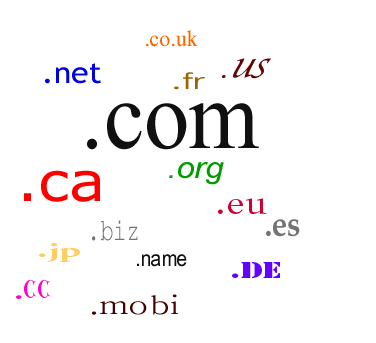ATTENTION ALL GODADDY.COM USERS!
I just received an email from “accountupdate@godaddy.com” in regards to an update/review of all contact information on the domains in my account. This is a relatively new requirement by ICANN in an effort to keep the registry database up-to-date.
If you own a domain or two, you know about this process. In fact, this email almost got me! But since I’ve seen many phishing scams, I decided to log into GoDaddy by typing in the URL instead of clicking on the link and sure enough–no account updates needed!
At the time, I didn’t think about it, but I decided to go back in and check. This time, I clicked the link in the email and it went to a domain called: goddiaddy.com and it was just registered yesterday: May 25th, 2010.
Contents of the scam email
FROM: accountupdate@godaddy.com
****************************** ***********
Important ICANN Notice Regarding Your Domain Name(s)
****************************** ***********Dear User,
it is that time of year again. ICANN(the Internet Corporation for Assigned Names and Numbers) annually requires that all accredited registrars (like GoDaddy.com) ask their domain administrators/registrants to review domain name contact data, and make any changes necessary to ensure accuracy. According to our records you are the ADMINISTRATIVE CONTACT for one or more domains registered at GoDaddy.com, Inc. as of May 1st, 2010.
To review/update your Account data, simply:
+ Login to https://dcc.godaddy.com/ default.aspx?isc=ICANN0908a& amp;ci=8987
+ You will be taken to a landing page and asked to enter your account information
Please take a look that your account and domain information is up to date.If, however, your domain contact information is inaccurate, you must correct it. (Under ICANN rules and the terms of your registration agreement, providing false contact information can be grounds for domain name cancellation.) To review the ICANN policy, visit:http://www.icann.org/ whois/wdrp-registrant-faq.htm
Should you have any questions, please email us at support@godaddy.com or call our customer support line at (480) 505-8877.
Thanks for your attention and thank you for being a GoDaddy.com, Inc. customer.
Sincerely,
GoDaddy.com, Inc. Domain SupportIf you are the domain administrator of more than one GoDaddy.com domain account, you may receive this notice multiple times.
—————————— —————————— —————————— —
Copyright (c) 2008 GoDaddy.com, Inc. All rights reserved.
I have reported this link to GoDaddy already, but interestingly enough, the domain pointed to a GoDaddy parking page rather than a login screen. I guess it’s possible that this attacker hadn’t finished building this site before he sent his email attack.
What to do if you see this email?
Blast this information out as far as you can reach and send it to reporting sites like Millers Miles. Report it to GoDaddy as well. The more reports they get, the faster these sites will be shut down.
 particular company, you should look into it. However, opinions on quality, speed, price and customer service vary significantly. It’s important that you decide for yourself how these factors rank on your list. As an example, you may find that paying more per month to get better customer support is worth it, but someone else might feel speed is more valuable.
particular company, you should look into it. However, opinions on quality, speed, price and customer service vary significantly. It’s important that you decide for yourself how these factors rank on your list. As an example, you may find that paying more per month to get better customer support is worth it, but someone else might feel speed is more valuable.